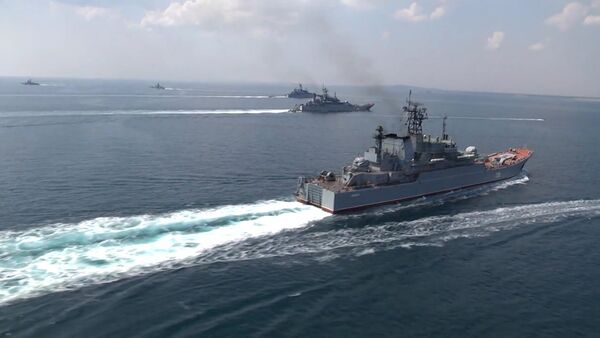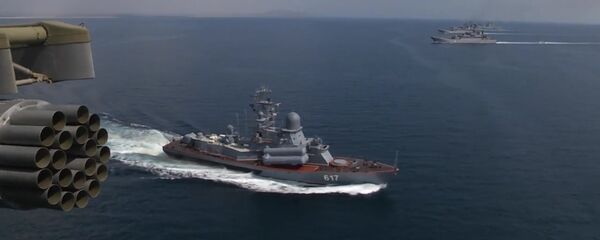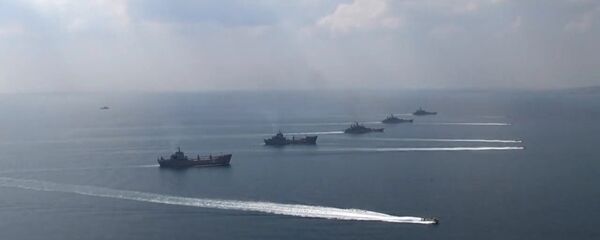Defense analyst Andrey Leonkov, an expert at the Arsenal Otechestva ((the Armory of the Fatherland) military magazine told RT that these war-games are "of utmost interest for our overseas partners."
The United States "is studying frequencies that [the Russian military] uses for radio communications; they are trying to intercept and decode transmissions. The Americans are probing the combat readiness of our troops. They are trying to understand what means of deterrence have been redeployed to Crimea," he explained.
On September 7, several Boeing P-8 Poseidon surveillance planes made two attempts to approach the Russian airspace over the Black Sea, forcing the Russian military to send the Sukhoi Su-27s to intercept the US Navy's aircraft.
A day later, a Boeing RC-135 reconnaissance aircraft and two P-8 Poseidon planes were seen on a patrol close to Crimea. The US Air Force and the US Navy conducted three similar missions on September 7 and 9. The Pentagon made two patrol flights on September 6.
Defense analyst Sergei Khatylev called the Pentagon's interest in the Kavkaz 2016 drills "understandable."
On the one hand, the US is interested in how Russia's Black Sea fleet operates and "what surveillance equipment and radio-technical capabilities the Russian Navy has in its arsenal," he said.

NATO is also interested in Crimea's comprehensive defense system, including land-based troops, special forces and aerial defense, he added. Russia has upgraded the peninsula's military capabilities in the region and deployed brand new military equipment there.
"The Americans want to know their technical characteristics, capabilities and approach routes," Khatylev explained.
"The activities of the US Air Force and militaries of other NATO members started in 2014 when Crimea reunified with Russia. This is the moment when partnership gradually turned into opponency which has been fueled by the United States," he told RT.






